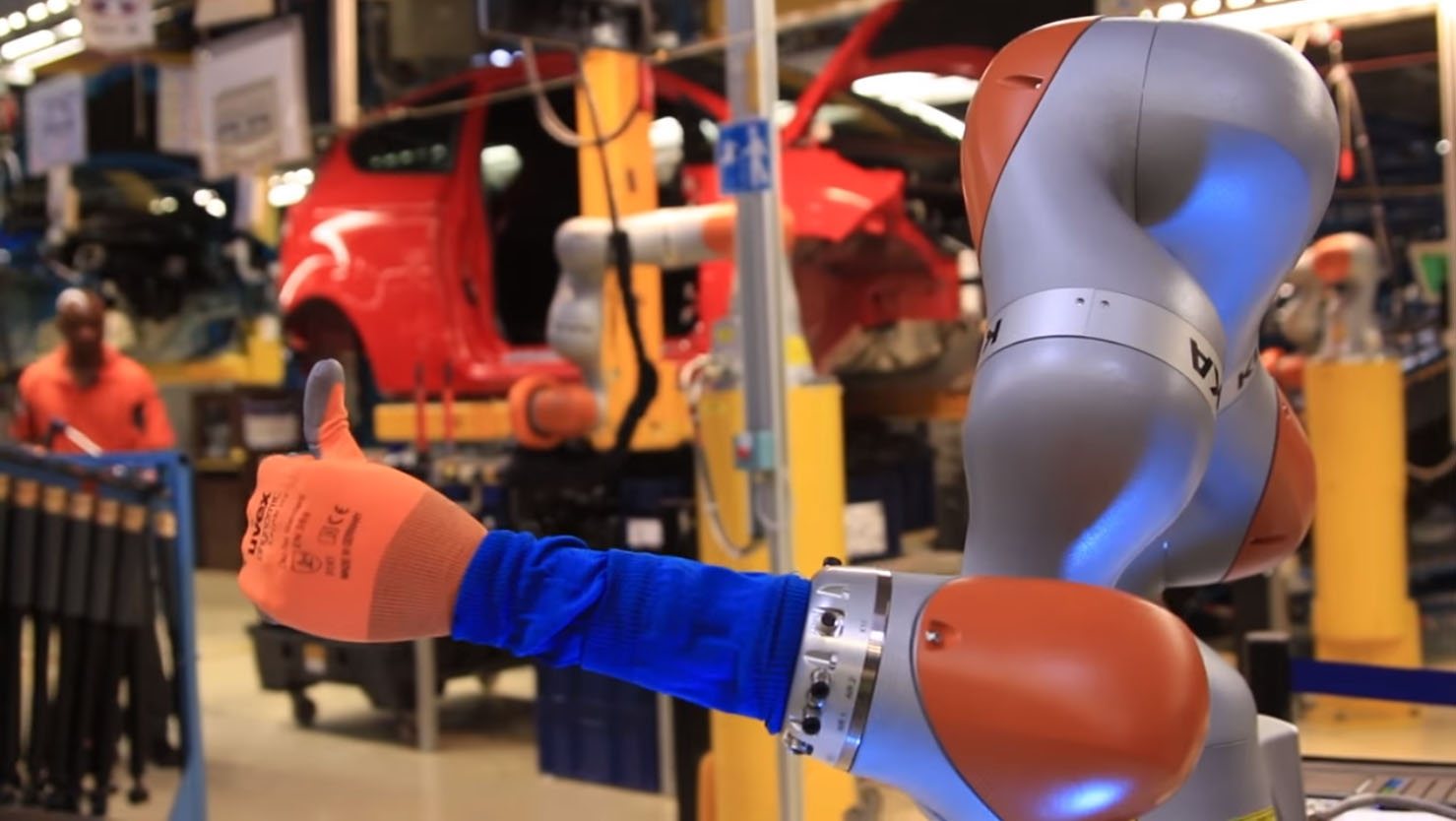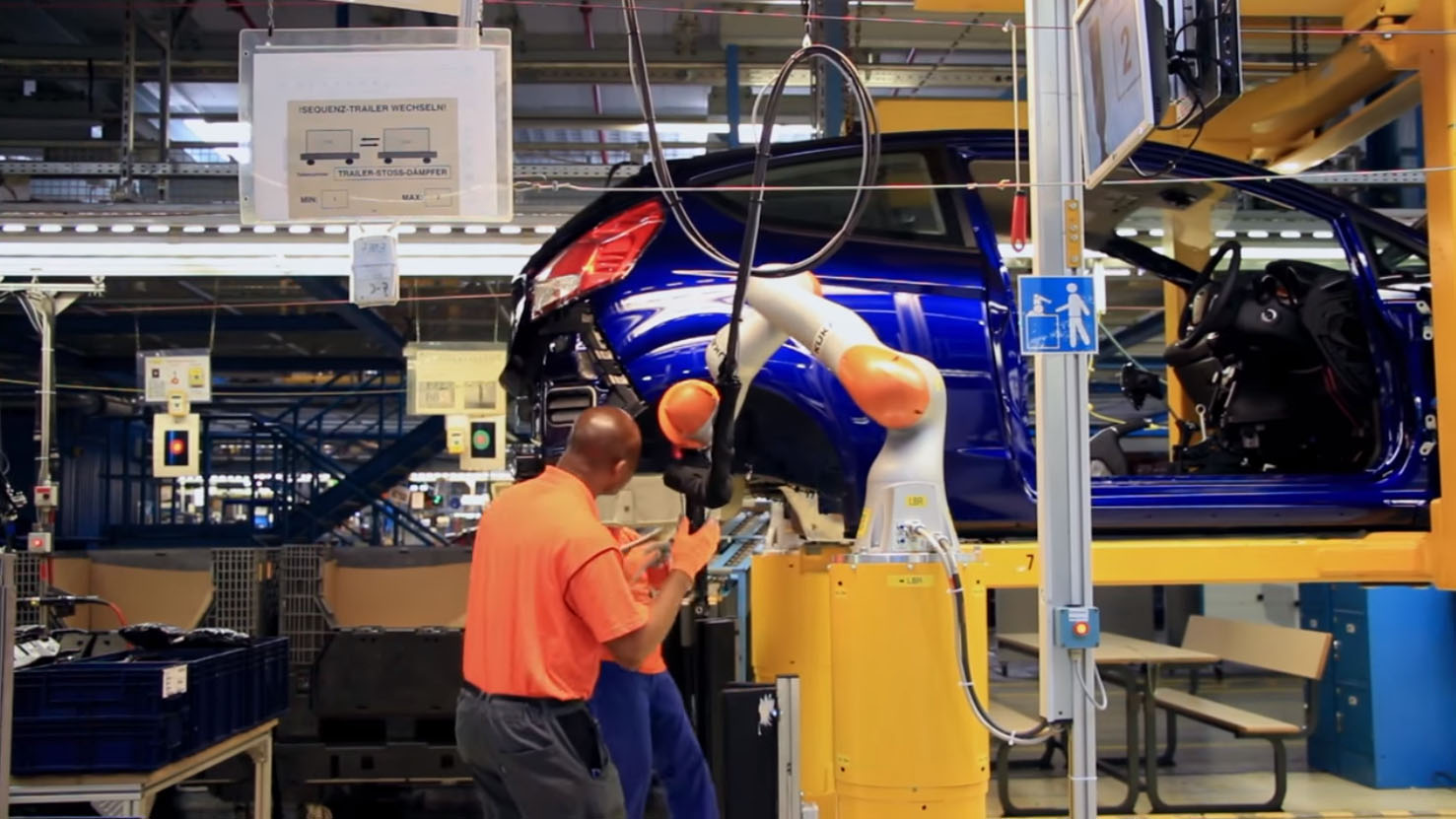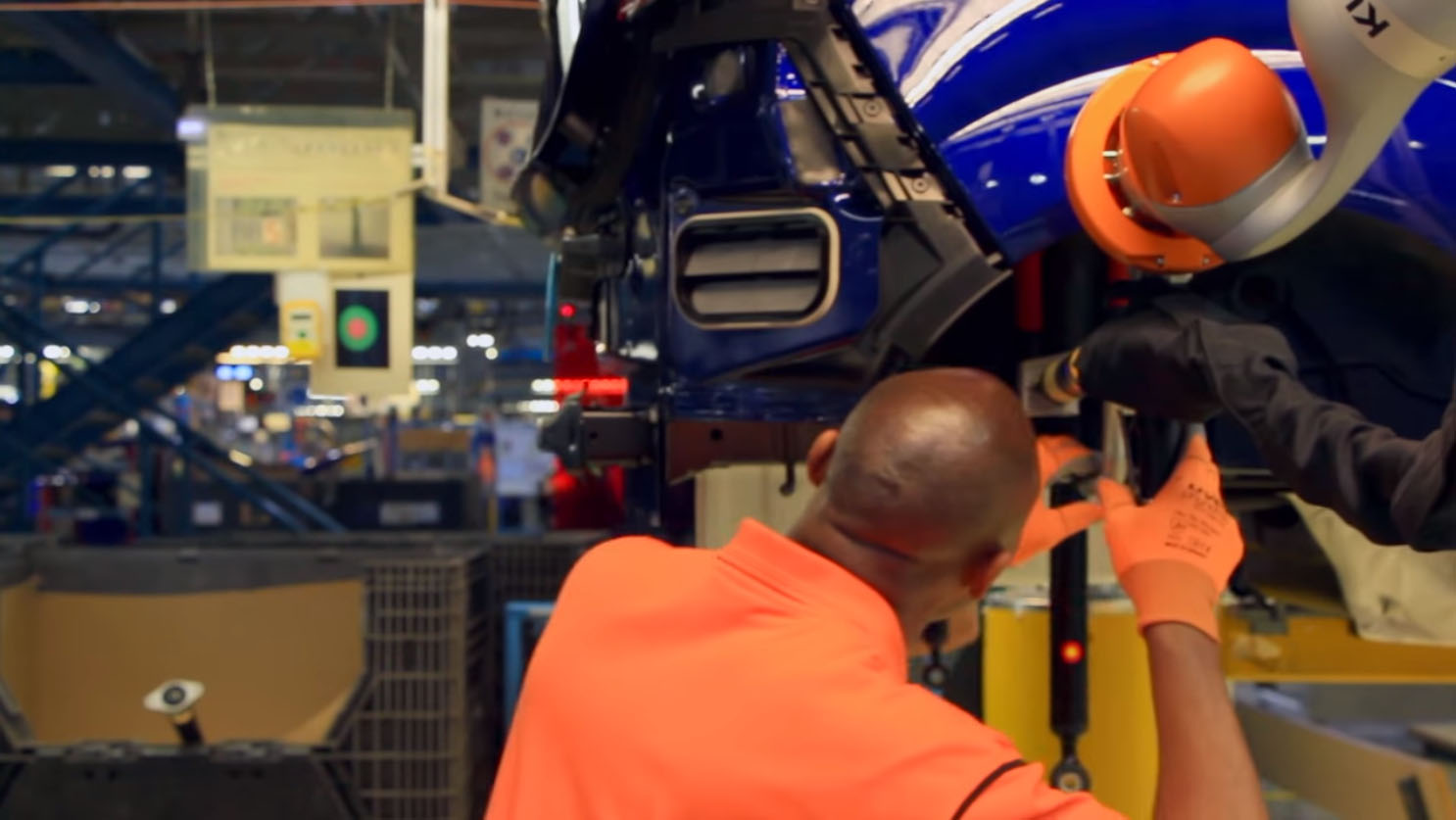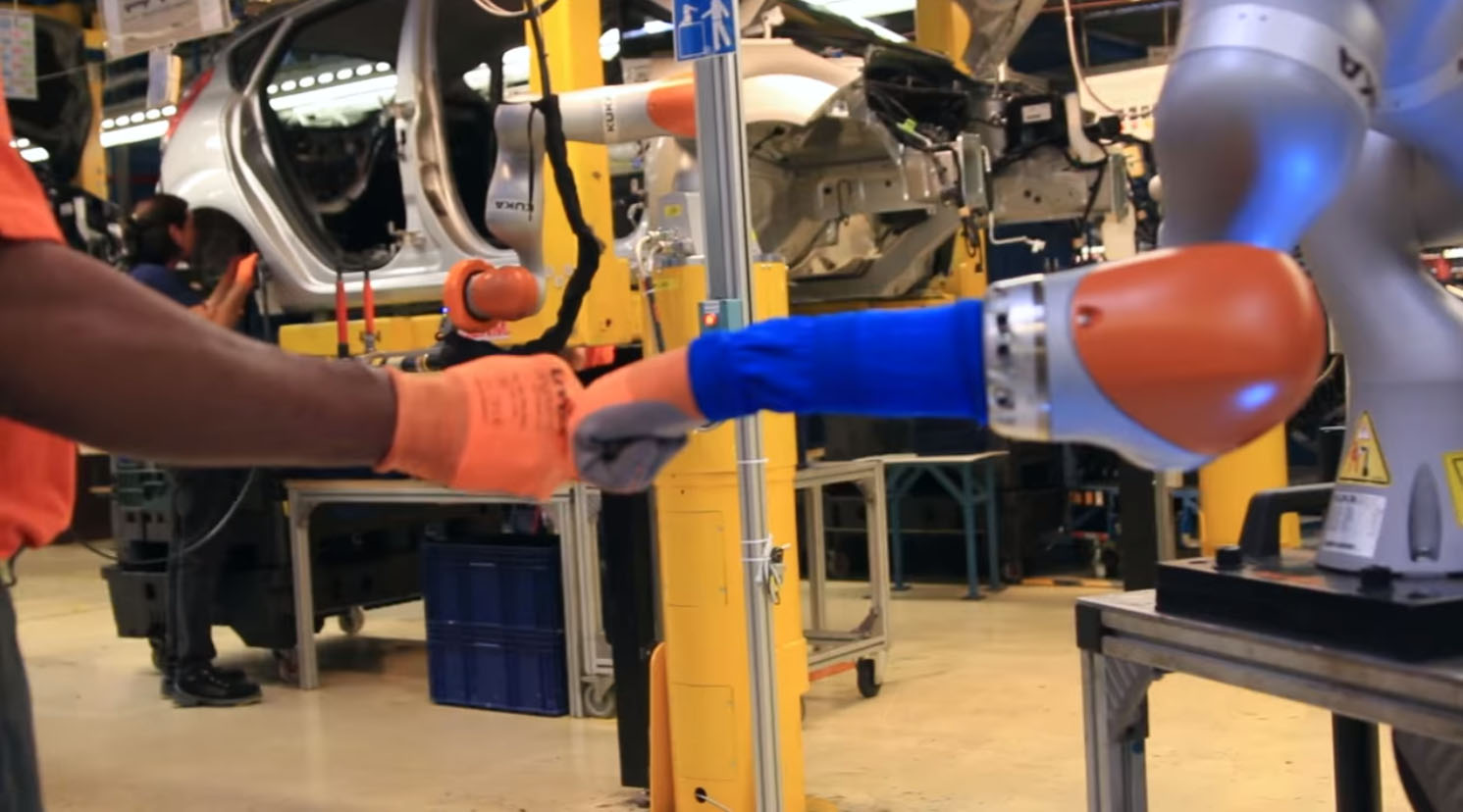At an assembly plant in Cologne, Germany, the American brand is running a trial program where humans and robots work side by side. Called co-bots, these small machines help workers install shock absorbers onto Fiesta subcompact vehicles, but according to Ford, the co-bots can even be programmed to make coffee or give massages. Any takers?
Installing shocks can be a very arduous process, as it requires significant effort and precision to fit the dampers into cramped, dark spaces. The co-bots are exceptionally strong and dexterous though, which not only helps with back rubs, it takes a literal load off the employees’ backs as well.
“Working overhead with heavy air-powered tools is a tough job that requires strength, stamina, and accuracy.” said Ngali Bongongo, a production worker at Ford’s Cologne plant. “The robot is a real help.”
Any time robots and humans interact, safety is a huge concern, but Ford has worked hard to put any post-apocalyptic or mechanical uprising connections to bed. The co-bots are equipped with a bevy of high-tech sensors that halt operations immediately if anything blocks their path, and the company behind the machines, KUKA Roboter GmbH, has years of experience in the industry.
Read more: 2017 Ford Super Duty’s adaptive cruise control can handle a 31,500-pound trailer
“We are proud to show the capabilities of our new generation of sensitive robots that are supporting and collaborating with Ford workers by carrying out ergonomically difficult and technically challenging tasks,” said Klaus Link, a Key Account Manager at KUKA. “As part of our close partnership with Ford and based on the feedback from employees, we are looking forward to further challenges.”
Just what challenges could Link be referring to? Perhaps automotive design work or the preparation of more complex coffee drinks? Only time will tell.
Editors' Recommendations
- The iRobot Genius 4.0 update makes Roombas even smarter
- Samsung Galaxy S21 will be a digital key for Audi, BMW, Ford, Genesis cars
- Ford’s plan to go carbon neutral by 2050 is big on promises, light on details
- Ford can use your voice to make your car’s wheels theftproof
- Ford could build its next Mustang-inspired electric car on Volkswagen bones







